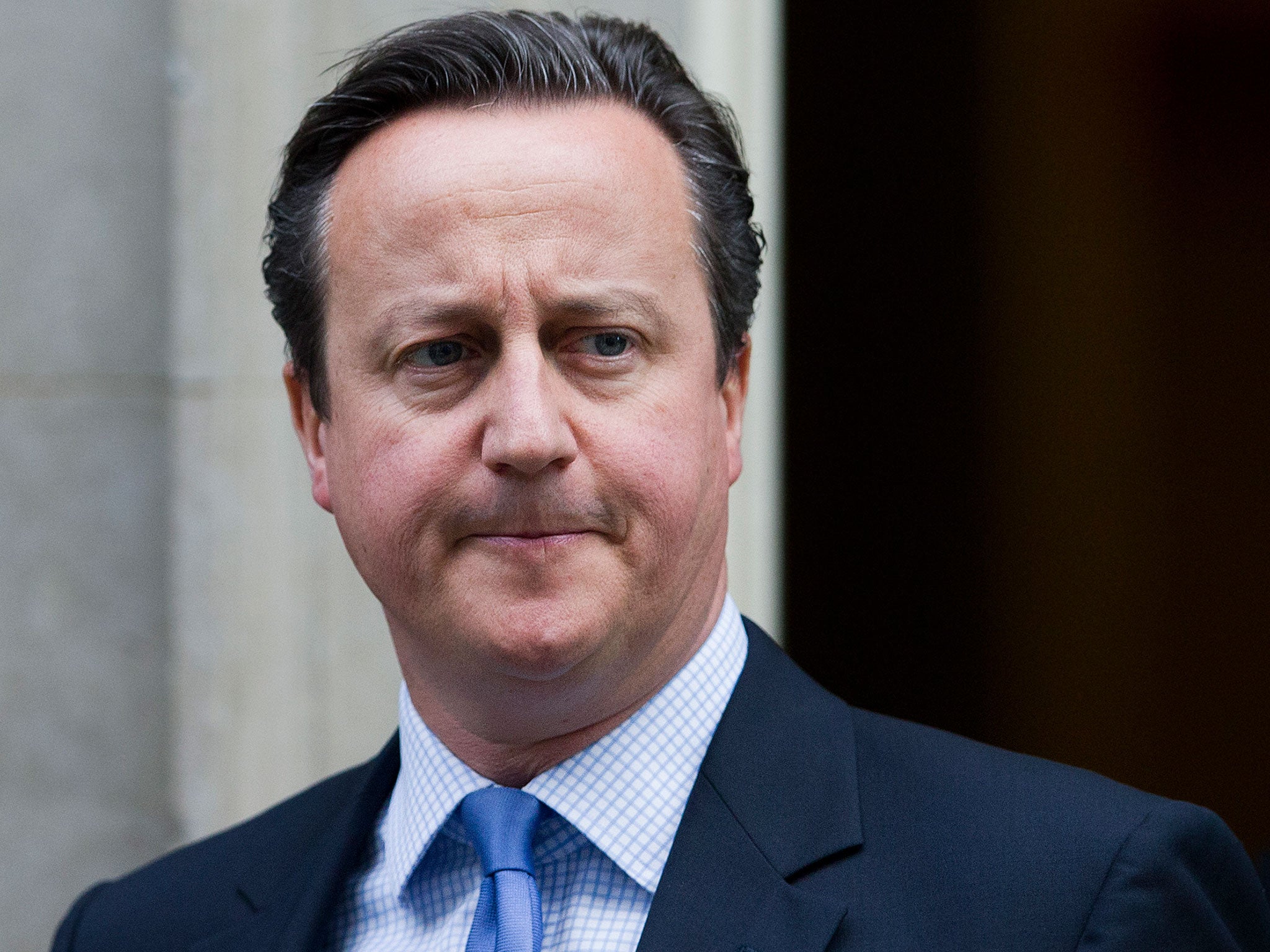David Cameron: Muslim Brotherhood members must be considered potential extremists but group should not be banned
Prime Minister finally publishes conclusions from long-awaited report into Muslim Brotherhood

Your support helps us to tell the story
From reproductive rights to climate change to Big Tech, The Independent is on the ground when the story is developing. Whether it's investigating the financials of Elon Musk's pro-Trump PAC or producing our latest documentary, 'The A Word', which shines a light on the American women fighting for reproductive rights, we know how important it is to parse out the facts from the messaging.
At such a critical moment in US history, we need reporters on the ground. Your donation allows us to keep sending journalists to speak to both sides of the story.
The Independent is trusted by Americans across the entire political spectrum. And unlike many other quality news outlets, we choose not to lock Americans out of our reporting and analysis with paywalls. We believe quality journalism should be available to everyone, paid for by those who can afford it.
Your support makes all the difference.David Cameron has said members of Muslim Brotherhood should be considered as potential extremists but stopped short of banning the group as he set out the conclusions of the long-awaited government report on the organisation.
The group, which played a central role in Egypt’s 2011 revolution, is considered a terrorist organisation by a number of countries but in others it has played a peaceful role in democratic elections.
Mr Cameron’s report concludes that it has a "highly ambiguous relationship with violent extremism" and parts of the organisation flies in the face of core British values.
It was completed in the summer but was not published after Saudi Arabia put pressure on the Government to ban the group.
Ministers have been accused of sitting on the report to avoid upsetting key allies in the Middle East.
The Prime Minister's report said the Muslim Brotherhood was a transnational network, with links in the UK and national organisations "in and outside the Islamic world".
In a scathing assessment, he described the movement as "deliberately opaque and habitually secretive".
In a statement to MPs, the Prime Minister wrote: “Aspects of the Muslim Brotherhood’s ideology and activities… run counter to British values of democracy, the rule of law, individual liberty, equality and the mutual respect and tolerance of different faiths and beliefs.
"Parts of the Muslim Brotherhood have a highly ambiguous relationship with violent extremism. Both as an ideology and as a network it has been a rite of passage for some individuals and groups who have gone on to engage in violence and terrorism."
He added: “The main findings of the Review support the conclusion that membership of, association with, or influence by the Muslim Brotherhood should be considered as a possible indicator of extremism.”
Join our commenting forum
Join thought-provoking conversations, follow other Independent readers and see their replies
Comments